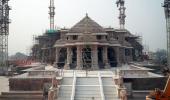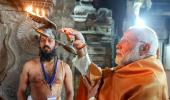Is 2024 a done deal for the BJP?
It was a done deal five years ago itself, but it did not have a guarantee.
Now, with the temple consecration, it seems to have acquired a Ramji Ki Guarantee, notes Saisuresh Sivaswamy.
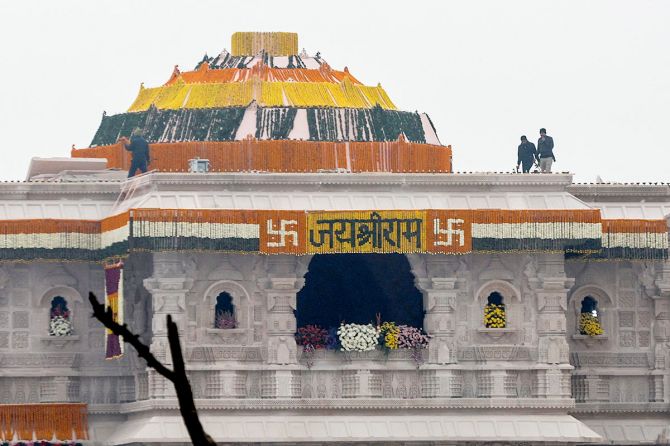
India is no stranger to temples, or their consecration.
Still, Ayodhya stands apart as a unique instance where a temple's pran pratishtha has been accompanied by a mass mobilisation of a scale never seen before since the freedom movement.
And the credit for this unprecedented exercise goes primarily to Prime Minister Narendra Modi, and in some part to Uttar Pradesh Chief Minister Yogi Adityanath for realising Modi's dream.
But that is a well known fact.
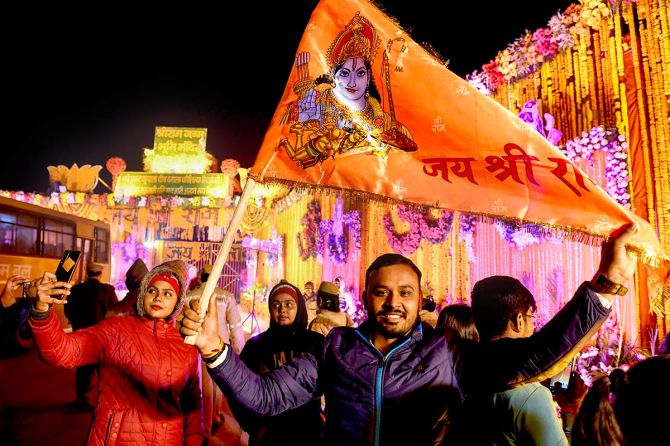
What is not known is whether the Ram temple mobilisation of Hindus will benefit the Bharatiya Janata Party, serve as the wave that will carry the BJP's boat over the magic mark in the elections that fall due in summer. The magic number here not being 300+ Lok Sabha seats but much higher.
After three days in Ayodhya witnessing from up close the fervour that has swept over Hindus visiting the city for the pran pratishtha, it has been an eye-opener.
While many may have been physically brought in for the event by BJP apparatchiks on instructions from higher-ups, not everyone who has come to Ayodhya for the Lord Ram coronation ceremony has come on a party call.
Many, if not most, are people like you and me incurring a cost and time overspend to be in Ayodhya, to share in what they say is the country and their religion's finest hour.
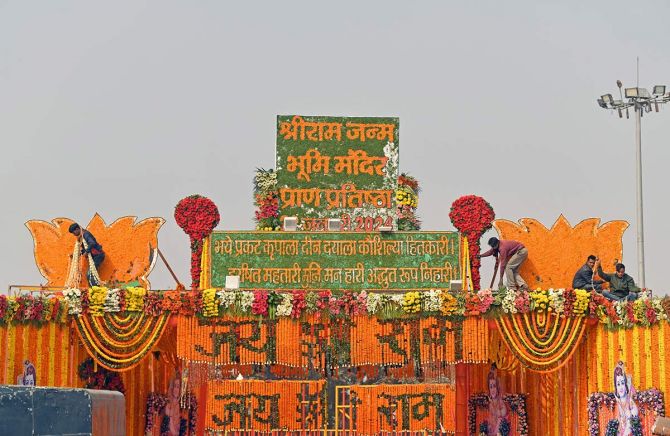
It's arguable if it's the Hindu faith's finest hour or even India's, but what cannot be denied is that it is Prime Minister Modi's finest hour.
If this is 'event management', then we have not seen an event of this scale and magnitude.
And by having it executed as per his vision, and active participation, he has drawn a clear-cut distinction between the first prime minister Jawaharlal Nehru and himself, and in the process cleaved India out of the Nehruvian template and recast it into a Bharat of his own vision.
To say Bharat that is India is to invert what the Constitution says, and that is exactly what Modi has done with his temple consecration.
The Ram temple was a party promise, and not a Government of India one. But while the BJP and the Ram Janambhoomi trust have been carrying out the work of construction and consecration, the real power behind the decision-making has been the prime minister. Who represents the government of the day.
He may not proclaim it openly, but not all messages need to be spelt out. The ones that matter are the unspoken ones.
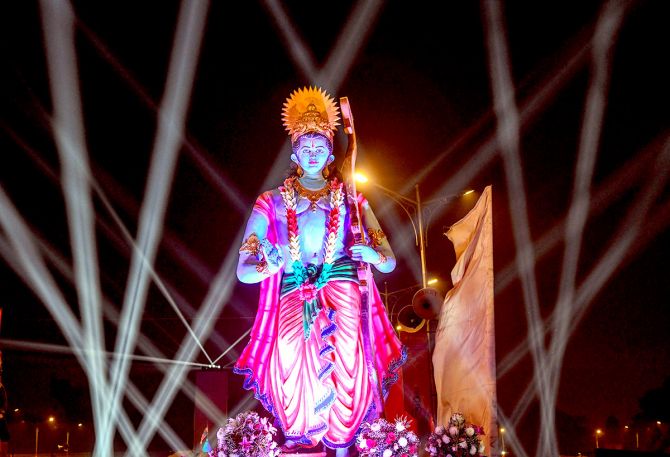
When the Supreme Court of India gave its verdict in the dispute in 2019, much after the Lok Sabha election results were out that year, it was believed that the Ram Janambhoomi dispute had encashed its final cheque in the Hindu vote bank.
The issue, many believed, had finally been laid to rest, and the BJP will have to find other mass movements to maintain its run.
Credit must be given to Modi for realising right at the outset that the issue was far from dead, and that with tactful handling it can still yield fruit.
The ecstatic crowds marching up and down Rampath and Dharmpath in Ayodhya these last few days is proof that the prime minister's gamble has paid off.
'The Hindu has awakened', 'Sanatana Dharma has triumphed at last', '500 years of slavery has ended' are just some of the views that I have heard mentioned all around me, when the people were asked what the Ram temple consecration ceremony means to them.
This is the voice on the streets, often dismissed derisively as representing Bharat; but the voice from upscale swish set, or India if you will, is no different -- its presence in the pran pratishtha on invitation is their silent acknowledgement of, and participation in, Modi's call.
The best laid plans are at times wont to backfire. Modi's phase one of the Ayodhya has seen timely execution.
The second part of the temple plan was to inspire ordinary Indians to join the celebrations.
And judging by the footfall in Ayodhya Dham over the last few days, Modi's call has been heard, and accepted.
The importance of the temple consecration is not of few stray Indians coming to Ayodhya to celebrate it.
It's what they take back to their homes in cities and villages, to their families and friends, and how the message gets amplified, grows legs and runs across the landscape before you can realise it.
And when that amplification and spread happens, it will be peak election season in India.
If this is not a masterstroke, I don't know what one looks like.
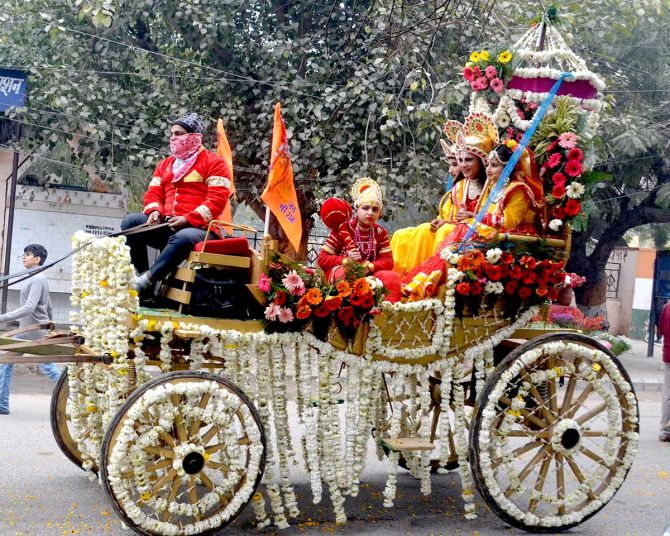
Modi's temple manouevre has had two fallouts.
One, Bharat has finally asserted itself over India.
Two, do not underestimate the continued electoral significance of Ayodhya.
So is 2024 a done deal for the BJP?
It was a done deal five years ago itself, but it did not have a guarantee.
Now, with the temple consecration, it seems to have acquired a Ramji Ki Guarantee.
Saying that does not mean that the government's election campaign will revolve around the temple or put a focus on it.
It doesn't need to, for the people will take that message back with them to the villages and towns where they will propagate it.
Will it be the first time that the target of a mass marketing campaign will themselves become the advertiser for the brand, in this case the BJP?
In India's case, it certainly seems possible.
This plan for 2024 was laid out in 2019, soon after the Supreme Court verdict.
What will it be for 2029, with the same appeal and emotional connect as the fulfillment of the Ram temple promise?
Even as the Opposition is thinking of 2024 elections a few months away, you can bet your last penny that the BJP has already started to plan out its campaign for 2029.
Will the gods come to the BJP's aid once again?
Feature Presentation: Rajesh Alva/Rediff.com
